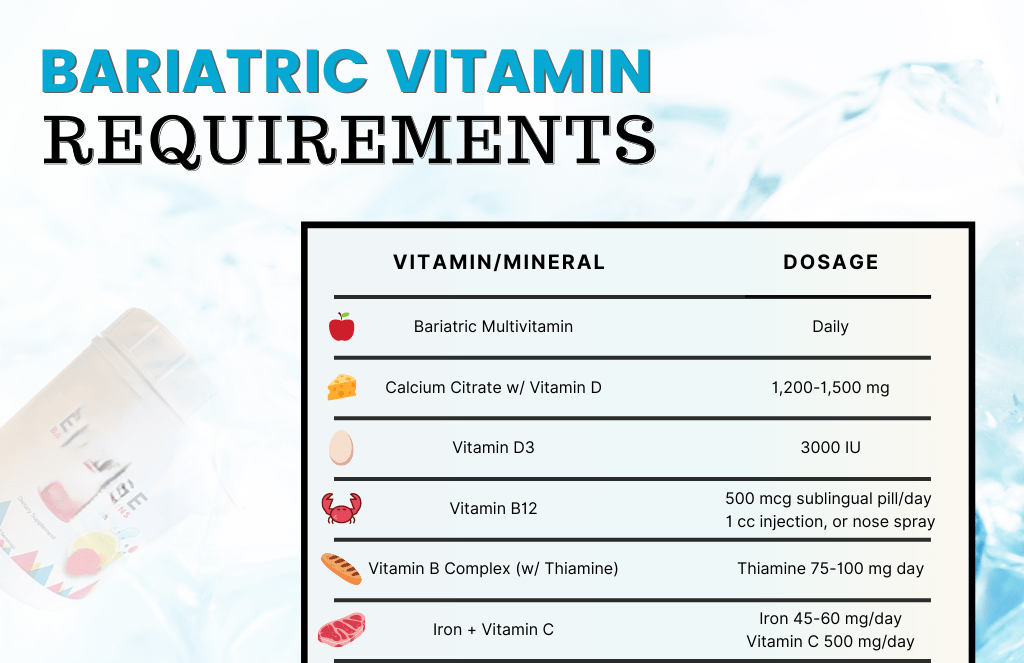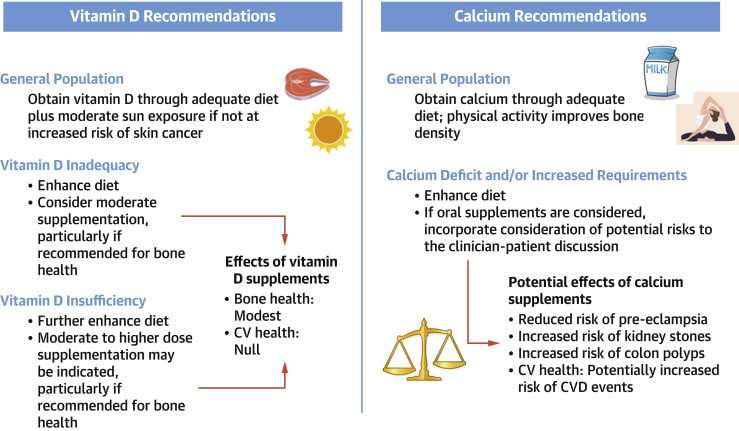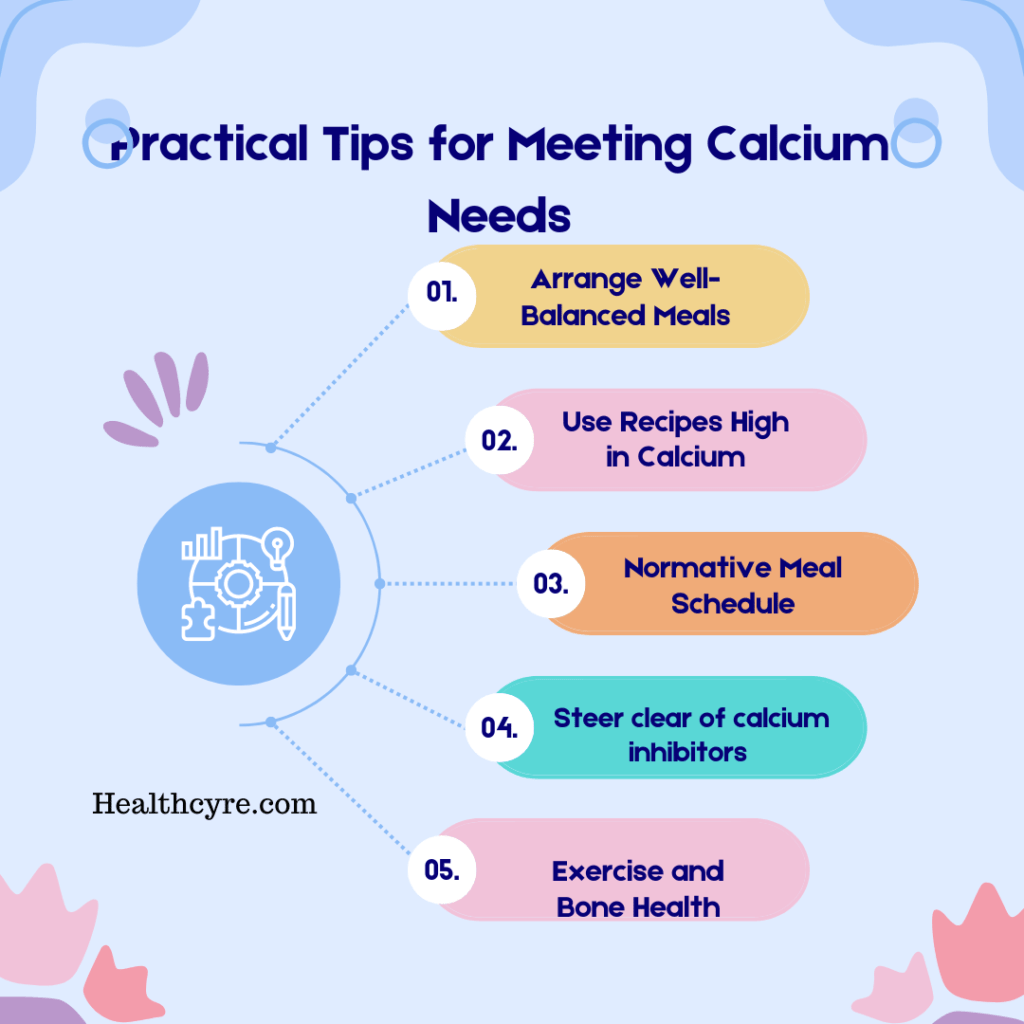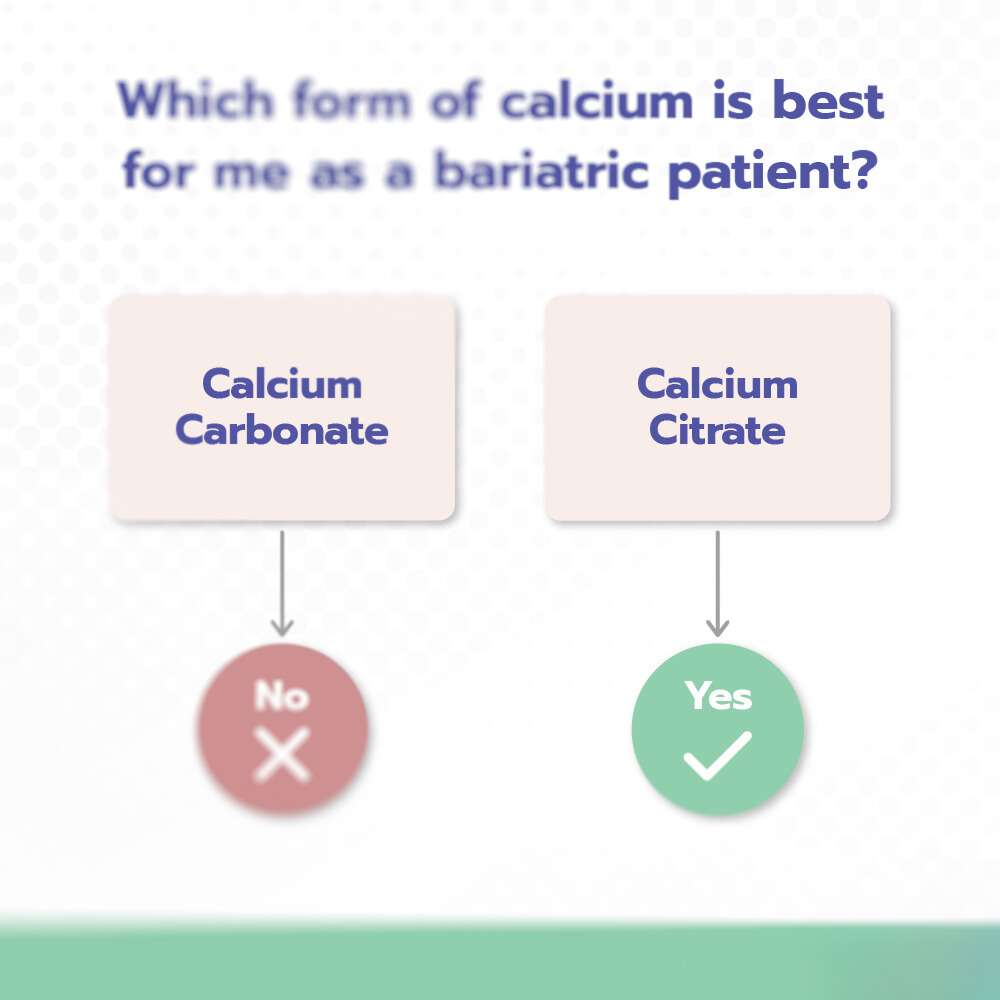Bariatric surgery is a transformative procedure for individuals struggling with severe obesity, leading to significant weight loss and improved health outcomes. However, it also necessitates lifelong nutritional management, particularly concerning intake. Adequate nutrition is crucial for maintaining bone health, and bariatric patients are at increased risk for deficiencies due to altered digestion and absorption processes post-surgery. This comprehensive guide will explore bariatric patients’ specific calcium needs, the recommended supplements, and the importance of monitoring levels.
The Importance of Calcium for Bariatric Patients
The daily requirements for calcium following a Roux-en-Y gastric bypass or sleeve gastrectomy are 1,200–1,500 mg. Following a duodenal switch, you require 1,800–2,400 mg daily. The amount of calcium you get from food contributes to your daily objectives.
Table of Contents

Recommended Daily Intake
Bariatric patients typically require a higher intake compared to the general population. The American Society for Metabolic and Bariatric Surgery (ASMBS) recommends the following daily intake:
- For Sleeve Gastrectomy and Adjustable Gastric Banding Patients: 1,200–1,500 mg of Elementa.
- For Roux-en-Y Gastric Bypass and Biliopancreatic Diversion Patients: 1,500–2,000 mg of elemental.
These recommendations take into account the decreased ability to absorb post-surgery. It is essential for bariatric patients to adhere to these guidelines to prevent deficiencies and maintain optimal health.
Types of Supplements
There are various forms of supplements available, but not all are suitable for bariatric patients. The two most commonly recommended types are:
Calcium Citrate
Because of its improved absorption, citrate is strongly suggested for bariatric patients, particularly those who have less stomach acid. It’s a practical alternative that may be taken with or without meals. Because they reduce the possibility of gastrointestinal problems, such as constipation, which may be an issue with other types of citrate supplements are frequently recommended.
Calcium Carbonate
While carbonate is widely available and less expensive, it requires stomach acid for proper absorption, making it less suitable for many bariatric patients, especially those who have undergone gastric bypass. It should be taken with food to enhance absorption, but it is generally not the first choice for those with altered digestive systems post-surgery.
Additional Considerations for Supplementation

Vitamin D
Vitamin D is crucial for absorption. Bariatric patients should ensure adequate vitamin D intake, as deficiencies are common post-surgery. The ASMBS recommends 3,000 IU of vitamin D daily to support metabolism. Regular monitoring of vitamin D levels is advised, and supplementation should be adjusted as needed.
Split Doses
It is best to divide the daily intake into smaller doses eaten throughout the day, as the body can only absorb so much at once. If the daily recommended consumption is 1,500 mg, for instance, it should be divided into three doses of 500 mg each.
Monitoring and Adjusting
Regular blood tests are essential to monitor vitamin D levels, ensuring they remain within the optimal range. Bariatric patients should work closely with their healthcare providers to adjust their supplementation regimen based on these test results.
Rich Foods for Bariatric Patients
In addition to supplements, incorporating rich foods into the diet is essential for bariatric patients. Here are some excellent sources of dietary.
Dairy Products
Low-fat dairy products, such as milk, cheese, and yogurt, are excellent sources. For those who are lactose intolerant, lactose-free options-fortified plant-based milk (like almond, soy, or oat milk) are good alternatives.
Leafy Green Vegetables
Certain leafy greens, such as kale, bok choy, and collard greens, provide a significant amount of. However, it’s important to note that some greens, like spinach, contain oxalates, which can bind and reduce their absorption.
Fortified Foods
Many foods are fortified with, including certain cereals, juices, and tofu. These can be an easy way to boost intake, especially if natural sources are limited.
Fish with Edible Bones
Fish canned with bones, such as sardines and salmon, have a lot of calcium. The soft, readily digestible bones supply a significant quantity.
Practical Tips for Meeting Needs Fibers.

Here are some practical tips to help bariatric patients meet their requirements effectively:
Arrange Well-Balanced Meals
Make sure you get some calcium from each meal. For example, eating yogurt as a snack, adding cheese to salads, or consuming fortified plant-based milk can all assist in meeting daily requirements.
Use Recipes High fibers
Plan your everyday meals to include recipes high in calcium. Soups with kale and tofu or smoothies made with fortified almond milk and leafy greens are filling and rich in fiber.
Normative Meal Schedule
Timing meals consistently helps the body absorb and use nutrients, Try not to miss meals and make an effort to eat sources throughout the day
Steer clear of inhibitors
Some meals and drinks might inhibit the absorption Eat less alcohol, coffee, and high-sodium meals since they can affect bone health and absorption.
Exercise and Bone Health
Regular physical activity is crucial for maintaining bone density and overall health. Weight-bearing exercises, such as walking, jogging, and resistance training, stimulate bone formation and strengthen the musculoskeletal system. Here are some exercise recommendations for bariatric patients:
Walking
Walking is an excellent, low-impact exercise that helps improve bone density and cardiovascular health. Aim for at least 30 minutes of walking most days of the week.
Resistance Training
Incorporate resistance training exercises, such as weight lifting or body-weight exercises, to build muscle strength and support bone health. Start with light weights and gradually increase as strength improves.
Balance and Flexibility Exercises
Exercises that enhance balance and flexibility, such as yoga and tai chi, can help prevent falls and improve overall mobility. These activities are particularly beneficial for maintaining joint health and stability.
The Role of Regular Check-Ups
Regular medical check-ups are vital for monitoring the health of bariatric patients. These check-ups should include:
Bone Density Scans
Periodic bone density scans (DEXA scans) can help assess bone health and identify early signs of osteoporosis. These scans are essential for evaluating the effectiveness of supplementation and dietary adjustments.
Nutrient Blood Tests
Regular blood tests to monitor levels of vitamin D, and other essential nutrients are crucial. These tests help healthcare providers adjust supplementation and dietary plans to ensure optimal nutrient levels.
Consultation with a Dietitian
Working with a registered dietitian who specializes in bariatric nutrition can provide personalized dietary advice and support. Dietitians can help create a balanced meal plan that meets individual nutritional needs and preferences.
Conclusion
Bariatric surgery significantly impacts absorption and overall nutritional health. Therefore, it is essential for bariatric patients to follow recommended guidelines for intake, choose appropriate supplements, and incorporate-rich foods into their diet. Regular exercise, medical check-ups, and consultations with healthcare providers play a critical role in maintaining bone health and preventing deficiencies.
By adhering to these practices, bariatric patients can enjoy the benefits of their surgery while ensuring their long-term health and well-being. Proper management of intake and overall nutrition is a lifelong commitment that will support a healthier and more active lifestyle.

1 thought on “How Much Calcium Per Day is Needed for Bariatric Patients?”